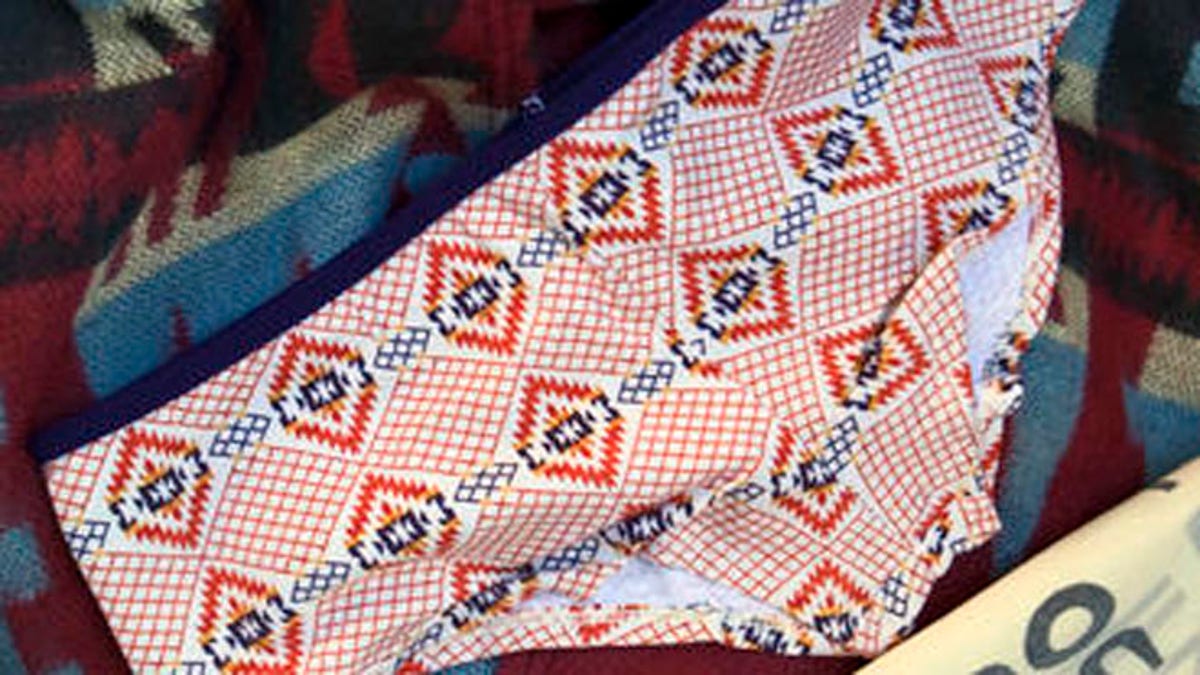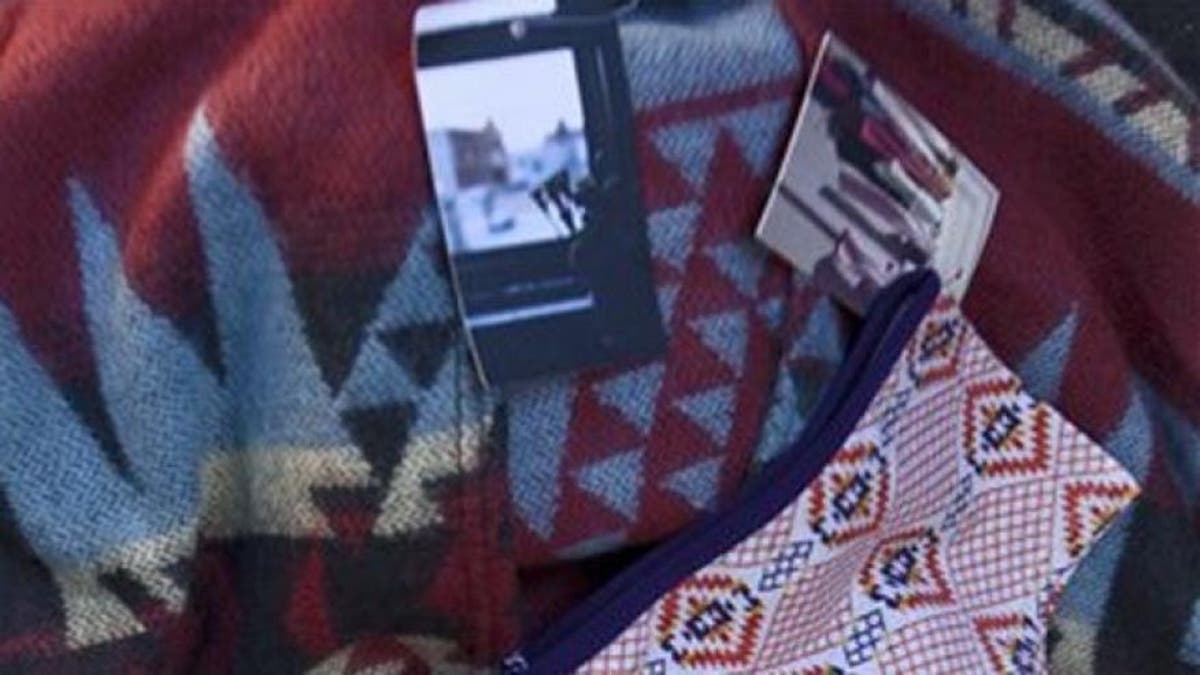
FILE - This Oct. 14, 2011, file photo shows purchased items from Urban Outfitters Navajo line in Tempe, Ariz. A federal judge has cleared the way for the Navajo Nation to seek potentially millions of dollars in its 2012 lawsuit over the company's use of the "Navajo" name. U.S. District Judge Bruce Black ruled Thursday, March 31, 2016, that the tribe didn't unreasonably delay a trademark infringement challenge against the clothing retailer. (AP Photo/Matt York, File) (Copyright 2016 The Associated Press. All rights reserved. This material may not be published, broadcast, rewritten or redistribu)
Should indigenous groups around the globe have the same intellectual-property rights afforded to musicians, filmmakers and other artists?
The question comes from an emerging concern about what some refer to as “cultural appropriation.” In fact, it has become such a controversial matter that the United Nations held a meeting in Geneva this week to consider attempts to penalize cultural appropriation.
The UN-backed group is working on three pieces of international law that would give indigenous groups legal rights to their name.
“We’re not talking about cultural appropriation, we’re talking about cultural misappropriation,” James Anaya, the dean of the University of Colorado law School and one of the guest speakers at the committee meeting of the World Intellectual Property Organization (WIPO), told Fox News. “Companies need to get permission from an indigenous group to use something that is culturally important and we need to develop strategies for how this can be implemented.”
Delegates from 189 countries are taking part in the discussions in the hopes of wrapping up negotiations into these laws. The committee was formed in 2001, but 16 years later – and much to the frustration of some indigenous leaders – it has still not come up with the proper language for laws regarding issues like how a group can grant permission for a person to use an indigenous cultural item, who gets paid for the use and what constitutes a sacred object.
A number of those in attendance in Geneva say progress has also been hampered by the fact that many indigenous communities don’t know about WIPO’s work.
"People at a national level don't know what's going on, and there aren't many processes where you can get information about this or contribute to the positions that are being taken here,” Aroha Te Pareake Mead, a member of the Ngati Awa and Ngati Porou tribes in Wellington, New Zealand, told the CBC.
The issue of “cultural appropriation” came to a head in 2012 when Urban Outfitters released its “Navajo” line, which featured "Navajo hipster panties," a "peace treaty feather necklace" and a "Navajo print flask."
The Navajo Nation sued Urban Outfitters months after the tribe sent a cease and desist letter to the clothing retailer demanding it pull the 'Navajo' name from its products. The tribe said it wanted to protect the use of the Navajo name and its trademark. The case was eventually settled out of court late last year.
Indigenous leaders say they want their concerns to be taken seriously.

(The Associated Press)
"We are only halfway through 2017 and yet the number of occurrences of misappropriation happening to indigenous peoples in all regions of the world seems relentless with no relief in sight," Mead said. "We asked the international community to help deal with a problem that traverses international boundaries and are still waiting."
But some critics say the issue cultural appropriation has gone too far. They say it demonizes anyone who attempts to represent a culture or heritage that is not their own.
As an example, many people point to an Oregon burrito shop - started by two white women after a trip to Mexico – which was forced to close its doors amid accusations of cultural appropriation that took off on social media. The women - Kali Wilgus and Liz "LC" Connelly – opened Kooks in Portland after “peeking into the windows of every kitchen” to learn how to make tortillas, but almost immediately drew fiery criticism.
“The Left wants to divide America into tiny victim groups, each vying for government control,” Dan Gainor, the vice president of business and culture at the Media Research Center, told Fox News. “Dare to have a white person play an Asian role or even cook Pho or standard Mexican fare and those involved must do penance.”
Gainor added: “This isn’t about freedom. It’s about control and rejection of all things American.”
But others say this is a different scenario. They say indigenous groups have the right to reimbursed when something from their culture is used by others.
Alden Abbott, the deputy director of the Edwin Meese III Center for Legal and Judicial Studies at The Heritage Foundation, told Fox News that indigenous groups have the same legal protections under trademark law that companies like Coca Cola do when trying to protect a design, symbol or name. Citing the Navajo Nation’s lawsuit against Urban Outfitters, Abbott said that the tribe’s name carries a certain level of quality and the use of “Navajo” by the clothing company infringed on its trademark protections.
But, Abbott warned, some claims of cultural appropriation can get out of hand.
“In principle, the idea being discussed in Geneva is not crazy, but when it starts to apply too broadly is when you run into trouble,” he said. “You can’t tell someone who is not Italian that they can’t open an Italian restaurant. That’s just a class of food, it’s too generic.”
